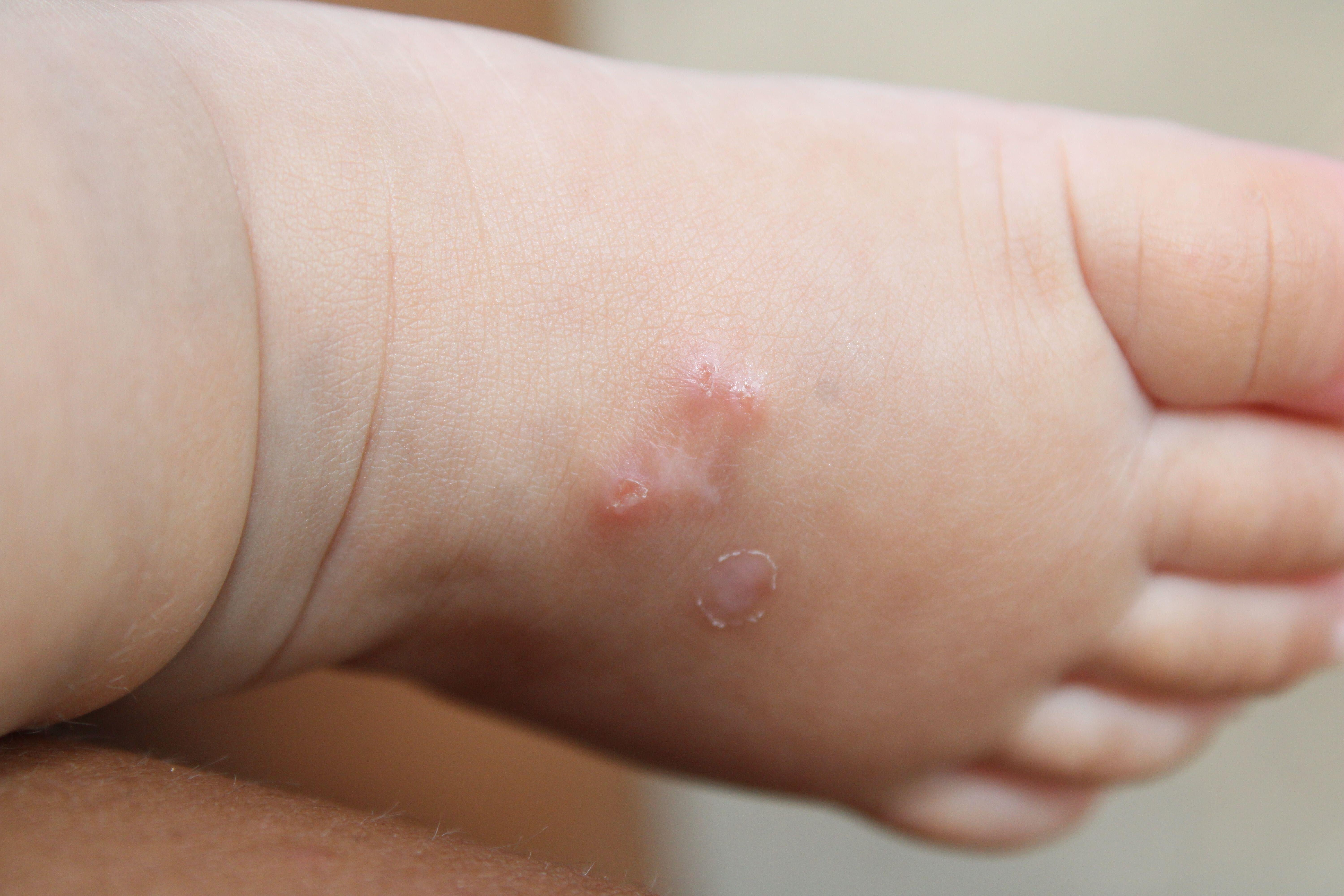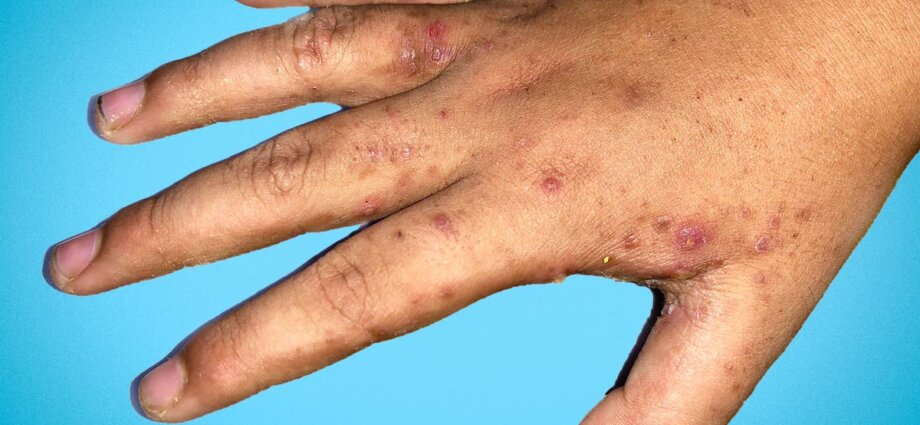GPs in England have reported a rise in cases of scabies, and have warned the public not to ignore an itchy rash which could be caused by the highly contagious skin infestation.
Scabies is caused by a parasitic mite which burrows under the skin and lays eggs, which causes intense itching and blisters to appear.
It is easily spread via skin-to-skin contact, or by sharing bedding, clothes or soft furniture, and can be quickly transmitted in shared accommodation, such as care homes and universities, with symptoms typically appearing around a month to six weeks after infection.
Professor Kamila Hawthorne, chair of the Royal College of GPs, has told the BBC that, while incidences remain infrequent, the number of GP diagnoses was “above the five-year average and rising, with the north of England seeing a spike in cases”.
“While not a serious condition, scabies can be very itchy and irritating,” she said. “If not properly treated, it can spread and increase a patient’s risk of complications, such as secondary skin infections or make existing skin conditions worse.”
Prof Hawthorne added: “We recognise that patients may be apprehensive to seek treatment given the social stigma that surrounds the condition, but it is important that they don’t ignore their symptoms as this could lead to them getting worse and risks transmitting the condition to other people.”
According to NHS figures, there were also 3,689 scabies cases diagnosed in hospitals in England in the year to April, marking a 73 per cent rise on the previous year, when there were 2,128 cases recorded.
At least 200 million people worldwide suffer from scabies at any one time, according to the World Health Organisation.

A British Association of Dermatologists survey found that eight of its nine regional representatives reported an increase in scabies last year. All but two reported shortages of permethrin and malathion, the two most common medications used to treat scabies in the UK.
A report in The Guardian blamed supply chain shortages and the war in Ukraine for the shortages, with dermatologists warning that the situation had become an “absolute nightmare”, citing outbreaks in care homes and student accommodation.
Prof Mabs Chowdhury, president of the British Association of Dermatologists, told the outlet in January: “The shortage of scabies treatments is something that urgently needs more attention.
“The public health calculation is not particularly complex – scabies spreads easily and if people aren’t treated, then it will continue to spread … A major concern is scabies spreading in care homes, university halls of residence, and other communal living facilities. This makes treatment much more difficult.
“If even one person isn’t treated completely, everyone can be reinfected. Given the challenges in social care and the treatment shortages, public health bodies need to plan for outbreaks in care facilities.”
In its report this week, the BBC spoke to students at five universities who described multiple cases arising “out of nowhere” and entire houses of students becoming infected.
In addition to treatment, which works best if carried out at the same time as other infected people with whom you share accommodation, people infected with scabies are advised to wash their bedding and clothes frequently and on a high heat to prevent from becoming reinfected.











